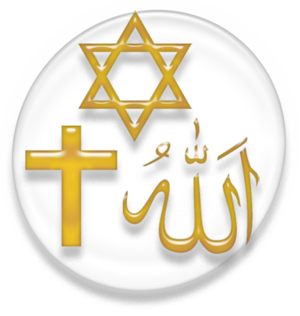I got The Evolution of God, by Robert Wright, from the library a few days ago. I put it on the hold list so long ago that I don’t remember why I got the idea to do it–but I’m glad I did.
I’m only a few chapters in, but I’ve already determined that a library copy of the book is not good enough for me, I’m going to buy one of my own. Because this is a book that deserves a thoughtful reading and re-reading. It’s packed full of historical and linguistic information, some of which I already knew or had deduced on my own, but a lot of which is entirely new to me.
And yes, the title is apt. Wright starts out with a discussion of hunter-gatherer spirituality (whether one can call it “religion” in the sense that we Westerners usually mean the term is debatable, since there’s no dividing line between religous and secular, in the way we understand it) and then goes on into a discussion of the beginnings of the Abrahamic religions (Judaiam, Christianity, Islam) and how we can still see how they changed over time. (Interestingly enough, he says there is no word for “religion” in ancient Hebrew either.)
Let me mention, for people who don’t know me, that I’m not an Abrahamic believer. 🙂 That is to say that even though I was born into a Christian household and have been fascinated by the Bible and by Biblical history since I was old enough to read Egermaier’s Bible Stories on my own (I’m guessing around age six) I never got the idea that the stories were literally true. I started reading Greek mythology at the same age and could never see a reason why one set of beliefs had to be “myth” while the other one was exclusively “true.” That makes me, to this day, an interested heathen.
Some of the things Wright points out, I had already noticed in the Old Testament, and have had many a discussion with Christian friends about over the years. Other things, I had noticed but had not considered them particularly noteworthy since they tied in with what other peoples’ gods were up to at the same time. As I mentioned, I’m still only into the first few chapters but already I’m so enthusiastic about this book that I wanted to take time out to say so.
It’s a book for believers and nonbelievers alike, and both groups will learn from it. I recommend it. But leave yourself time to do the reading.


